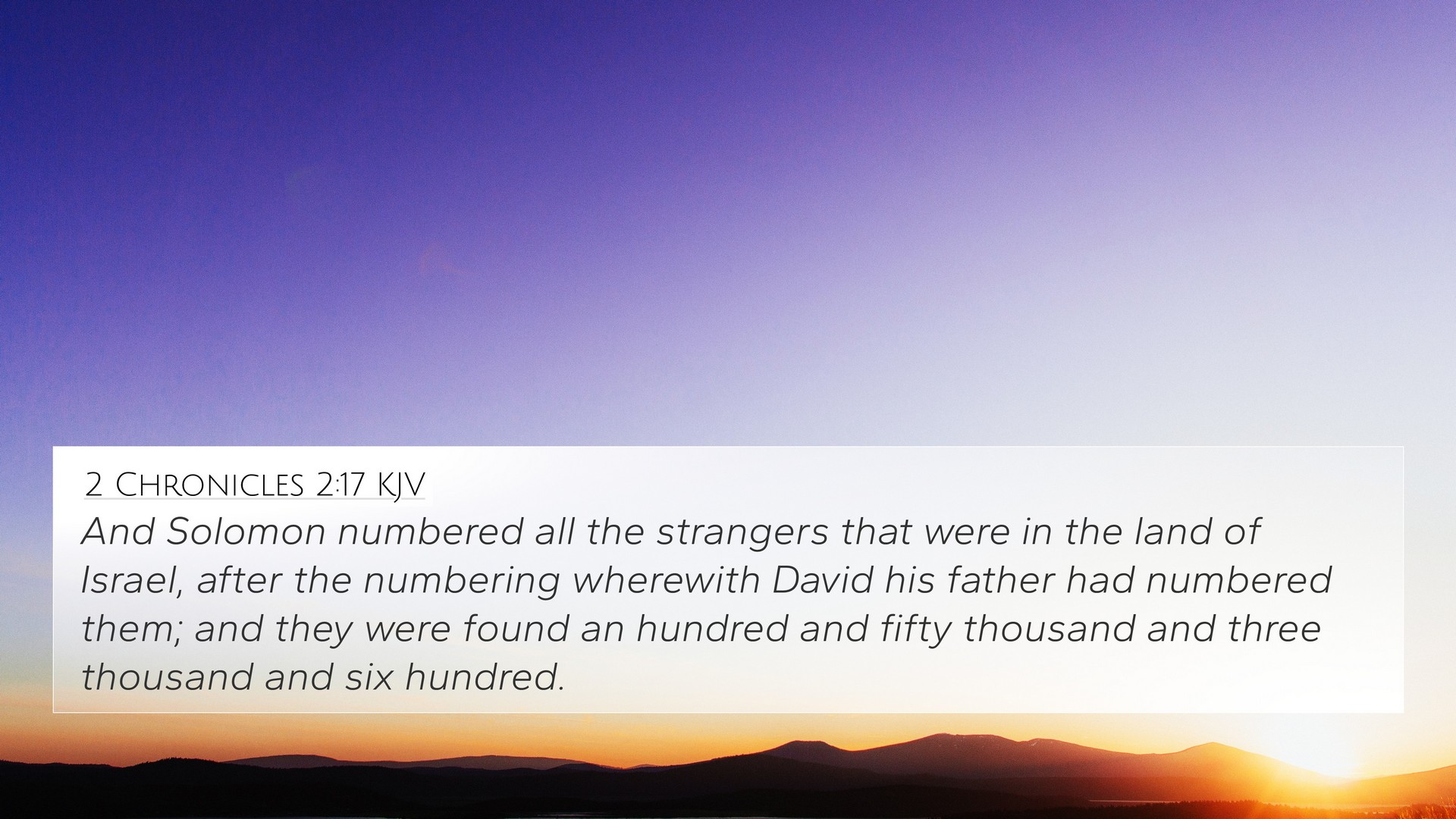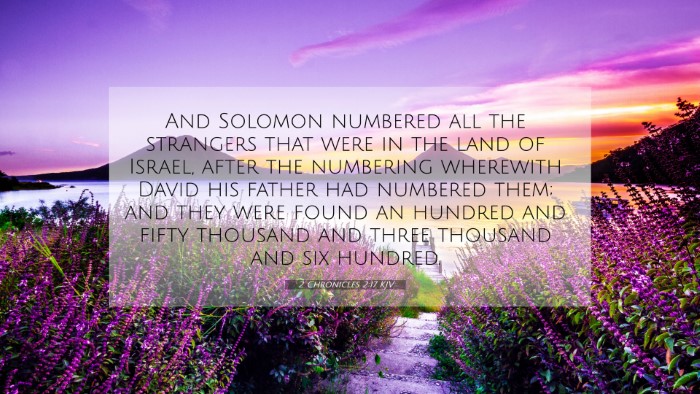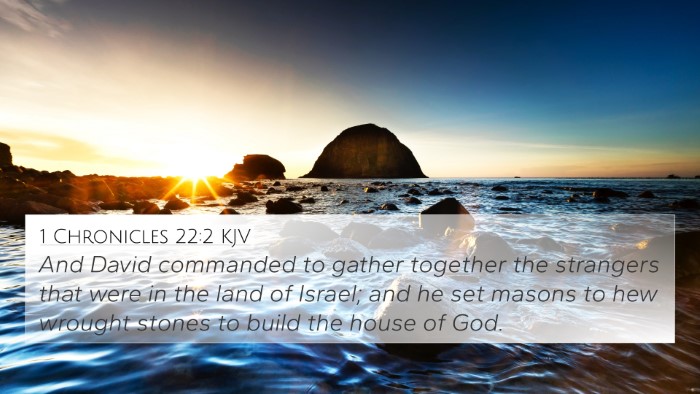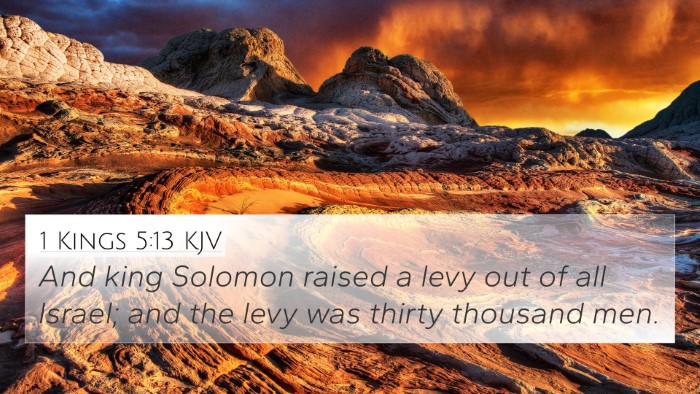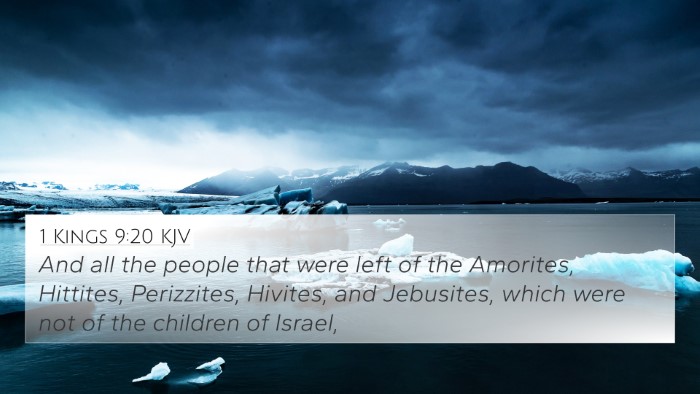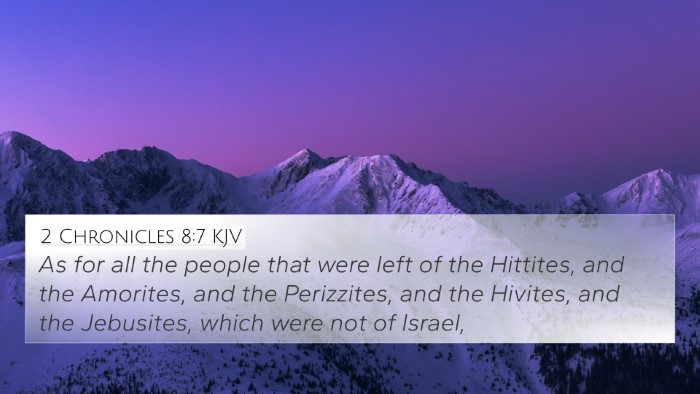Understanding 2 Chronicles 2:17
Verse: "And Solomon numbered all the stranger that were in the land of Israel, after the numbering wherewith David his father had numbered them; and they were found an hundred and fifty thousand and three thousand and six hundred."
This verse illustrates King Solomon's efforts in organizing and managing the workforce for the construction of the temple. It signifies a continuation of David's earlier endeavors while also highlighting the importance of community and labor in fulfilling divine purposes.
Commentary Insights
- Matthew Henry: He emphasizes the continuity of leadership from David to Solomon, noting that numbering the inhabitants served both as a means of taxation and organization. It reflects Solomon’s wisdom in managing the resources available for building the temple.
- Albert Barnes: Barnes points out the strategic necessity of counting the 'strangers' (non-Israelites) among the people, acknowledging their contributions to the labor force. He interprets this action as Solomon's recognition of the diverse community involved in God’s work.
- Adam Clarke: Clarke comments on the demographic significance of the numbers, illustrating how Solomon built upon David’s previous census. He connects this verse to God’s overarching plans for the nation of Israel, establishing a foundation for the temple that was pivotal in Jewish worship.
Thematic Connections
This verse can be linked to several broader themes within the Bible, including:
- Leadership and Governance: The act of numbering reflects the importance of leadership in maintaining order and organization within the community.
- Worship and the Temple: The building of the temple represents the physical manifestation of God's presence among His people. This labor is portrayed as a collective effort.
- Covenant Community: Highlighting the diverse makeup of the workforce signifies the inclusivity of God's promises reaching beyond Israel to all within her borders.
Cross-References
2 Chronicles 2:17 resonates with various passages across the Scriptures:
- 2 Samuel 24:9 - David's census of Israel and Judah, establishing a precedent for Solomon's actions.
- 1 Chronicles 22:2 - David's preparation for the temple, which initiated this inclusive workforce.
- 1 Kings 5:13-14 - Solomon's drafting of laborers from Israel and beyond reinforces the theme of preparation for the temple.
- Exodus 12:48-49 - The inclusion of strangers in the Passover event mirrors the communal aspect emphasized in Solomon's numbering.
- Nehemiah 2:17 - Nehemiah’s call for collective action in rebuilding highlights the importance of community in governance.
- Isaiah 60:10-14 - Prophetic imagery of nations participating in the glory of God's temple establishes the outreach of God's plan.
- Revelation 21:24 - The nations walking by the light of the New Jerusalem signifies a continued theme of inclusion in worship.
Inter-Biblical Dialogue
In studying 2 Chronicles 2:17, it’s insightful to observe how this verse dialogues with other Biblical texts:
- Numbers 1:1-3 - The first census taken among the Israelites parallels the theme of numbering as a means of organizing the community.
- Galatians 3:28 - The all-inclusiveness of God's grace aligns with the inclusion of non-Israelites in Solomon’s workforce.
- Luke 4:18 - Jesus's mission to the marginalized resonates with Solomon's acknowledgment of diverse labor in fulfilling God's purposes.
Conclusion
This exploration of 2 Chronicles 2:17 serves as a rich example of how biblical passages interconnect to form a cohesive understanding of God's community among His people. Through Solomon's actions, we gain insight into leadership, the shared labor in worship, and God's inclusive covenant, drawing connections between the Old Testament and New Testament themes.
Tools for Further Study: Utilizing tools such as a Bible concordance or cross-reference Bible guides can enhance your understanding of these connections. Engaging in comparative Bible verse analysis and exploring thematic Bible verse connections will deepen your insights into similar biblical themes.
